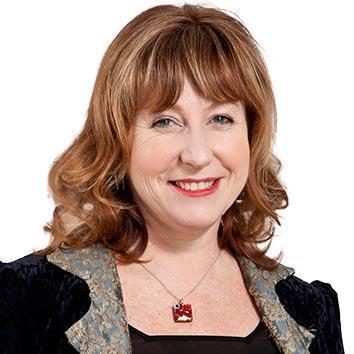NZ game development industry gets record-breaking rise
- 02 August, 2018 19:05

Broadcasting, Communications and Digital Media Minister Clare Curran welcomes the results of an independent survey that shows New Zealand’s game development industry earned a record $143 million in the last financial year.
The annual revenue represents a 43 per cent rise on the previous year.
The survey of 41 New Zealand Game Developers Association studios found 93 per cent of this revenue came from exports of digital creative software, and the number of artists and developers employed in the industry rose 10 per cent.
“The results are a testament to the wealth of talent in New Zealand’s game development industry, which continues to go from strength to strength. It’s great to see the top quality work that comes out of these studios is staking its claim on the international stage,” says Curran.

The survey also highlights areas that can be improved and if addressed, could help realise the potential of New Zealand’s game development industry.
“The government has the ambitious goal of growing ICT so it’s the second largest contributor to GDP by 2025. Our tech sector is already growing but we need do things differently if we are to achieve our ICT goal. It’s vitally important to this Government that people’s wellbeing is at the heart of this and everything we do,” says Curran.
“The largest 10 game development companies earned the lions’ share of the industry’s revenue and employed 81 per cent of the industry’s workforce. But if we want game development to continue to grow in a sustainable way, we need to support the next generation of small game studios to scale-up.
“The survey results will contribute to new research on interactive media – including game development. I’m looking forward to seeing the research results when the report is released later this year.
“Part of the research will explore how the interactive media industry relates to government goals. The recommendations for government and industry could really help us work together to realise the potential of this fast-growing area.”
Support for startup game businesses and ‘indie games’ is one of the issues being looked into by a report on Interactive Media and Video Games being undertaken by NZTech and the NZ Game Developers Association with support from the Ministry of Business, Innovation and Employment.
Interactive entertainment is the combination of two of NZ’s most successful exports – creativity and code
“Interactive entertainment is the combination of two of New Zealand’s most successful exports – creativity and code,” says New Zealand Game Developers Association chairperson Michael Vermeulen.
The overall industry outlook continues to look good, with 63 per cent of studios expecting more than 10 per cent growth in the coming year.
This optimism, he says, is reinforced by several local game studios having announced further successes since the survey closed.
Bloons Tower Defence 6 by West Auckland-based Ninja Kiwi became the number one paid app in the world, ranking above Minecraft, on both the Apple and Android app stores when it launched in June. Local studio Grinding Gear Games was acquired by the world’s largest games publisher Tencent for over $100 million – one of the largest tech exits in New Zealand history.
Those successes come from studios developing and exporting their own original game IP, rather than contracting for publishers or Hollywood studios, he says.
This continues to be the most profitable business model, making up 77 per cent of the industry’s revenue - an increase on previous years.
However, it requires more initial development and marketing investment which is lacking in the New Zealand ecosystem.
Revenue from contract work (12 per cent) and selling advertising in games (7 per cent) has remained constant, but accounts for a smaller percentage of industry revenues as profits from original IP investments take off.
Overall, the interactive games industry in New Zealand is now worth more than half a billion dollars.
In addition to making video games, Kiwis spent $118.3 million in retail stores on games and $334 million on digital and mobile gaming during 2017 according to figures from the Interactive Games Entertainment Association. The combined value of software development earnings and local consumer spending totals $595.3 million.

Our tech sector is already growing but we need do things differently if we are to achieve our ICT goal
As of March 2018 there were 550 full-time professional game developers working in New Zealand studios, in a mix of creative and technical roles. 31 per cent of employees are artists, 29 per cent are programmers, 12 per cent are in marketing or management, 10 per cent are game designers, 7 per cent work in quality assurance and 6 per cent are producers.
Diversity continues to be a priority for the Game Developers Association as the sector has only 21 per cent female employees. The association says it runs programmes to attract and retain female game creators.
However, 24 per cent of studios felt that skills shortages were constraining the growth of their business, especially for experienced senior staff.
Many experienced developers come from offshore, with seven studios currently employing 84 staff on work supported visas - 15 per cent of the entire industry.
Other barriers to growth identified are difficulties attracting early stage funding, expansion capital, the quality and experience of graduates and attracting international projects.
Follow CIO New Zealand on Twitter:@cio_nz
Sign up for CIO newsletters for regular updates on CIO news, views and events.

